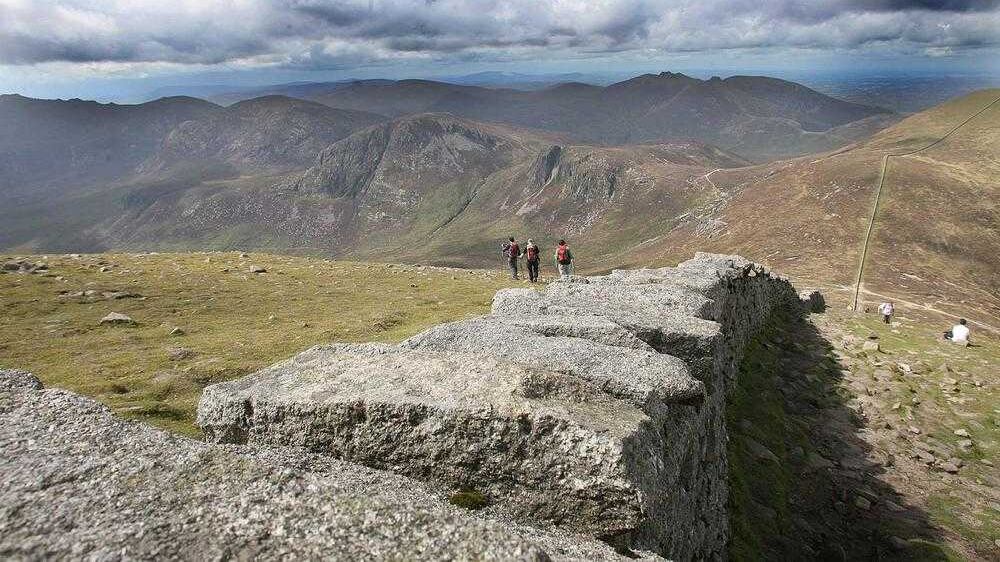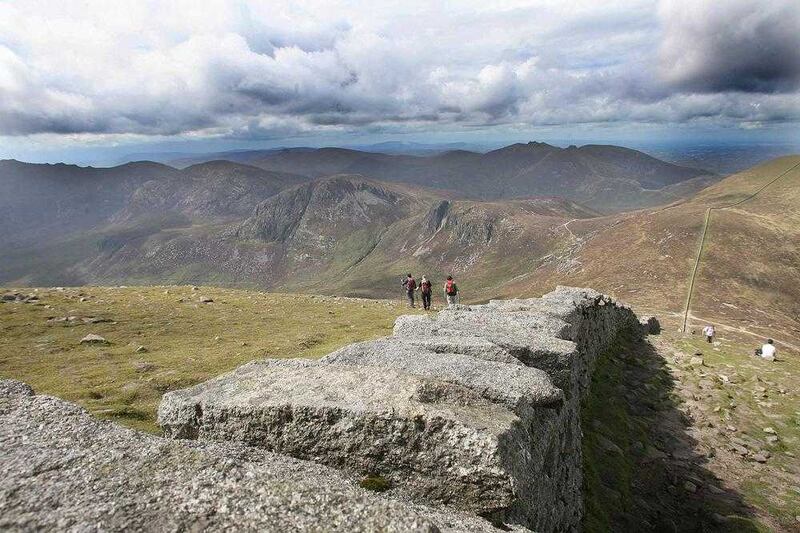HUMAN beings are being urged to appreciate the potential role of our natural environment in helping us stay healthy and live for longer.
A conference entitled Delivering Health Through The Environment is taking place in Belfast on November 24, bringing together experts from the environmental and health sectors to discuss how they could work together to help save lives and save taxpayers’ money.
Figures in the 2013/14 Health Survey Northern Ireland report revealed that the number of obese and overweight adults in the north had increased to 63 per cent, compared to 59 per cent in 2010/11.
A total of 73 per cent of participants in the survey admitted they felt there was something they could do to make their life healthier, including eating more healthily and being more physically active. Respondents felt that by reducing the amount of stress in their lives and controlling their weight their lives would be healthier.
Separately, mental health statistics for the north show that 250,000 adults and 45,000 children and young people have a mental health need at some point – that is one sixth of the 1.8 million population. Refine NI has said that the rates of depression in Northern Ireland “are associated closely with unemployment, low educational achievement and social deprivation”.
There is no quick-fix or cure-all solution to the numerous factors that affect people’s mental and physical wellbeing but there is an increasing awareness that the environment or natural world can play a role both at a preventative and curative level.
On November 24, 150 environment and health representatives will come together at Queen's University Belfast to explore the health benefits gained from the natural environment.
The event has been organised by Northern Ireland Environment Link (NIEL) in partnership with the Public Health Agency (PHA), the Centre for Excellence for Public Health at Queen's, the Chartered Institute of Environmental Health (CIEH), Belfast Healthy Cities, the Ecosystems Knowledge Network and the Space & Place programme.
The significance of the conference is that it will allow those with expertise within the environmental and health sectors to gather in one room with the people who can help take practical steps towards making policy a reality, ie local authorities.
NIEL boss Craig McGuicken says it provides an opportunity for discussing a “cross-sectoral partnership” which could have multiple benefits, including helping to protect our environment, reduce the public-health bill while improving people's wellbeing.
“The PHA is proactively supporting a variety of community gardens and allotment programmes which have multiple benefits such as supporting people to be more physically active; improving their nutritional intake; reducing stress and anxiety; reducing social isolation and supporting people to learn new skills,” Mary Black of the PHA says.
"We are also promoting a number of walking, cycling and running initiatives which encourage people to enjoy physical activity outside. The physical environment undoubtedly has a key role to play in this regard."
CIEH director Gary McFarlane goes a step further, calling for a “new paradigm for public health” as a critical step towards facing up to the UK's health, wellbeing, economy, and environmental challenges.
One of the highlights of the conference will be the contribution of Dr William Bird, a family GP who started encouraging patients to get walking in the 1990s by coming up with the ‘green gym’ concept.
Dr Bird, voted one of the top 30 influential conservationists in the UK by the BBC Wildlife magazine, wants people to become healthier by reconnecting with the outdoors.
In a 2007 report for the RSPB, entitled Natural Thinking: Investigating the links between the Natural Environment, Biodiversity and Mental Health, he argued that contact with nature could be an “effective component” in treating children Attention Deficit Hyperactivity Disorder (ADHD” as well as helping to tackle people’s stress levels, benefitting those with dementia and easing the anxiety felt by cancer patients, to name but a few.
“Humans are a species with as much need for the natural environment as any other. However, we are also a social species that thrives in towns and cities and has prospered with the use of technology. But neither technology nor cities can replace our need for the natural environment. We have to keep a balance.
“By disconnecting from our natural environment, we have become strangers to the natural world: our own world. This has challenged our sense of identity and in some more subtle ways has had a significant affect on our mental health,” he wrote.
On the Belfast conference, Dr Bird says that the medical world “needs to shift to a model of prevention, not just treatment and the natural environment has a major role to play in this. The natural world is the greatest outpatient department where we can go for healing”.
His comments are timely given that the Wildlife Trusts are warning that an entire generation of children is growing up disconnected from nature, with just one in 10 ever playing in wild places.
The trusts have just published a poll showing that 27 per cent of children aged 8-15 had never played outside by themselves.
Sir David Attenborough has warned that society will be “physically, mentally and spiritually impoverished if our children are deprived of contact with the natural world”.
And it’s not just children who benefit from nature. In July researchers found that living close to trees made residents in the city of Toronto feel better by making the air cleaner and reducing stress levels.
:: To learn more about the NIEL conference visit www.nienvironmentlink.org.



